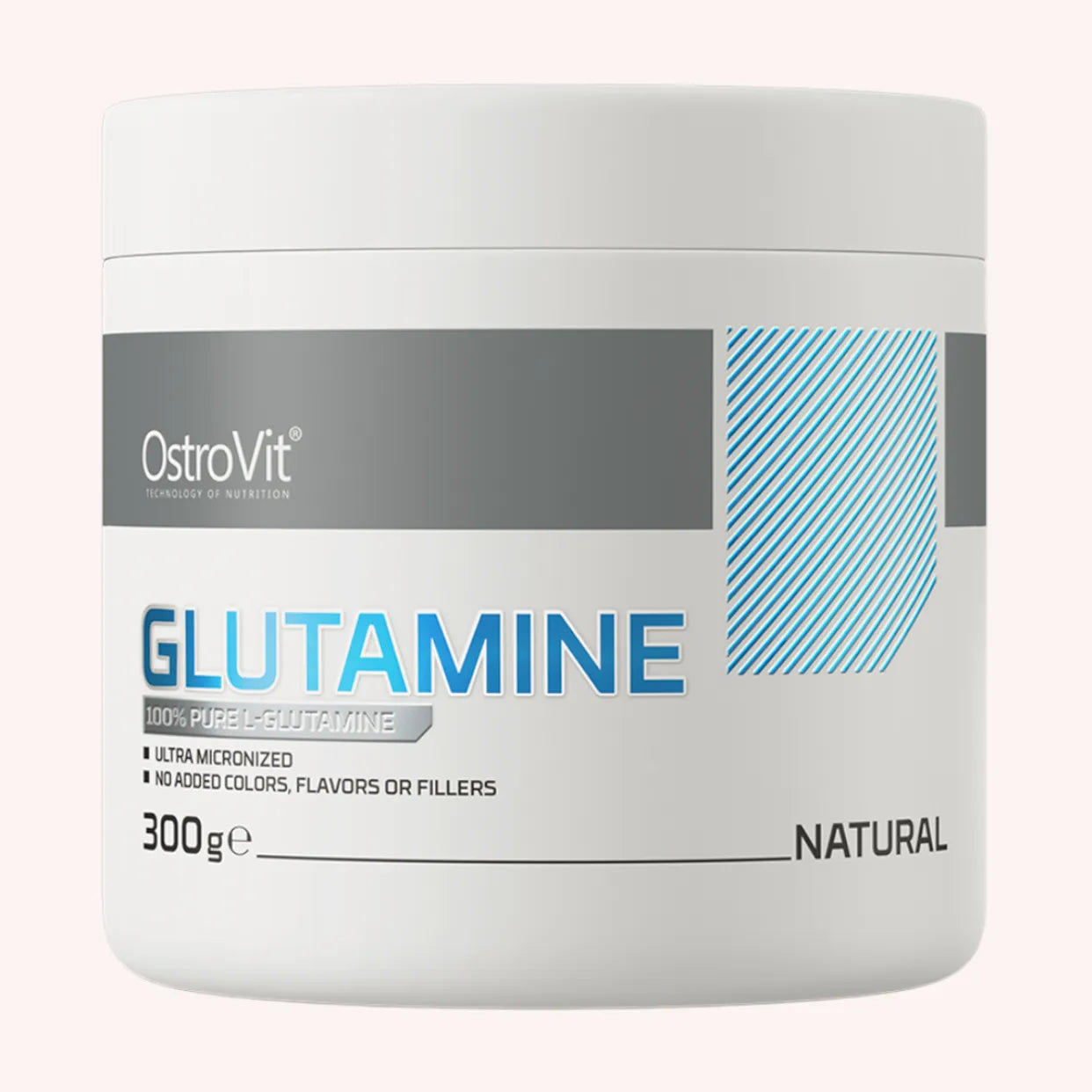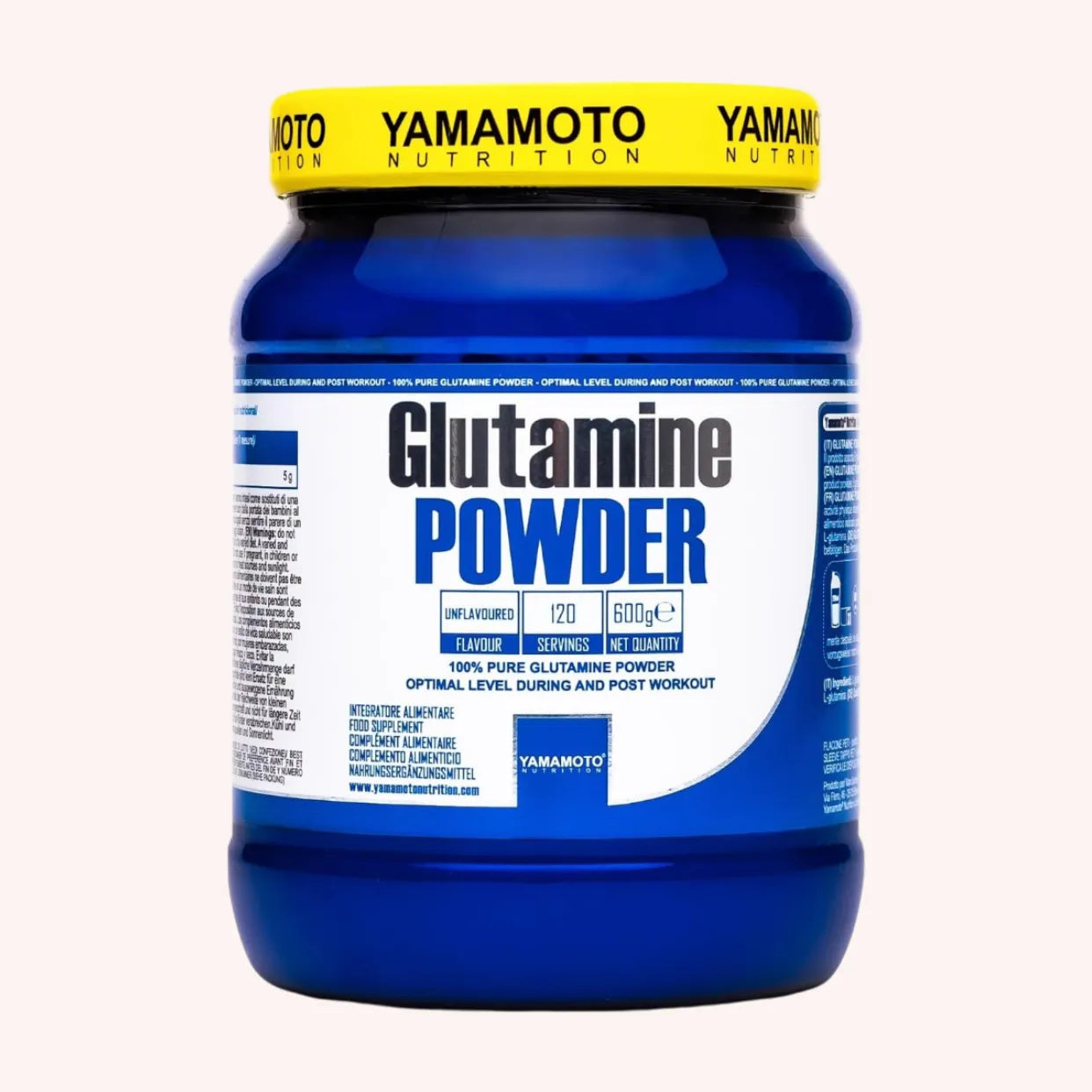Glutamine is an amino acid naturally present in the human body and commonly used as a supplement by athletes to enhance performance and promote muscle recovery.
However, as with any supplement, it is essential to understand its potential dangers and side effects. Here, we will analyze all the risks associated with glutamine supplementation.
What is glutamine?
Glutamine is one of the most abundant amino acids in the human body, playing a vital role in protein synthesis, immune system support, and gut health. It is found in many protein-rich foods such as meat, fish, dairy products, and some vegetables.
Despite glutamine's benefits, the use of glutamine as a supplement should be approached with caution.
Beneficial effects of glutamine
Glutamine is primarily known for its positive effects on athletic performance. By increasing ATP stores in the muscles, it helps prolong intense workouts and maximize muscle strength and endurance.
Additionally, it promotes muscle mass gain by increasing the muscles' ability to store water, thus creating an environment conducive to muscle growth.
It also plays a central role in post-exercise recovery by helping to replenish ATP stores and reduce muscle damage, allowing athletes to train more frequently and more intensely.
Potential dangers and side effects
Digestive disorders
Among the most commonly reported side effects of glutamine use are digestive upsets. Excessive consumption can lead to bloating, stomach cramps, and diarrhea.
These effects are often temporary and disappear once the body adjusts to the supplement. It is recommended to start with a moderate dose to minimize these discomforts.
Impact on kidney function
Studies have shown that glutamine supplementation can cause a temporary increase in serum creatinine levels, a marker often used to assess kidney function. This is generally a transient effect with no long-term consequences for healthy individuals.
However, people with a history of kidney problems are advised to consult a healthcare professional before starting glutamine supplementation.
Cardiovascular risks
The French Agency for Food, Environmental and Occupational Health Safety (ANSES) advises against taking dietary supplements containing glutamine for people with cardiovascular risk factors, such as high blood pressure or a family history of heart disease.
These recommendations are based on reported cases of cardiovascular disorders associated with the use of glutamine supplements.
Effects on glutamate metabolism
Glutamine is metabolized into glutamate, an excitatory neurotransmitter. In some people, particularly those taking anticonvulsants, this conversion can theoretically decrease the effectiveness of the medications and potentially increase the risk of seizures.
It is therefore essential for individuals taking anticonvulsants to discuss the use of glutamine with their treating physician.
Risk of contamination
As with any supplement, the quality and purity of glutamine products can vary. It is essential to choose certified and tested products to avoid contamination with toxic or banned substances.
Athletes must be particularly vigilant to avoid products containing contaminants that could compromise their health or lead to positive results in anti-doping tests.
Contraindications of glutamine
Pregnant and breastfeeding women
As a precautionary principle, glutamine supplementation is not recommended for pregnant or breastfeeding women without medical advice.
The effects of glutamine on fetal development and breast milk composition have not been adequately studied to ensure their safety.
People suffering from cancer
Glutamine may be a preferred fuel source for certain types of cancer cells. Research has shown that some tumor cells use glutamine to aid their growth and survival.
Therefore, it is prudent for people with cancer or a history of cancer to avoid glutamine supplementation without prior medical advice.
Other pathologies
People with cirrhosis, hepatic encephalopathy, epilepsy, or psychiatric illnesses should also avoid glutamine.
These conditions may be exacerbated by glutamine supplementation, making their management more complex.
Safe dosage
For adults, a dose of 5 to 14 grams of glutamine per day is generally considered safe. This dosage allows you to benefit from the positive effects of the sports supplement on muscle recovery, the immune system, and gut health without major risks.
Higher doses should be approached with caution and under medical supervision to avoid any adverse effects. Although some studies have used doses up to 40 grams per day without problems, we advise you to consult a healthcare professional for doses above the standard recommendation.
It's important to remember that glutamine supplementation should not replace a balanced diet. Glutamine is naturally found in many protein-rich foods, such as meat, fish, dairy products, and some vegetables. A protein-rich diet can often provide sufficient glutamine, reducing the need for supplements.
Glutamine is therefore an essential amino acid with numerous benefits for athletes, but its use must be guided by an awareness of the potential risks. By respecting the recommended doses and consulting a healthcare professional if necessary, it is possible to enjoy the benefits of glutamine while minimizing its dangers.
We recommend that you always choose quality products and stay informed about the latest research to safely optimize your supplementation.
Sources:
- Khoshnejad M, Dia Y, Patel A, Xu Z, Zhu X, Yun K, Wojtak K, Qureshi R, Humeau L, Muthumani K, Weiner DB. “DNA-Encoded Glutamine Synthetase Enzyme as Ammonia-Lowering Therapeutic for Hyperammonemia.” Nucleic Acid Ther. 2020 Dec;30(6):379-391. doi: 10.1089/nat.2020.0886. Epub 2020 Sep 9. PMID: 32907467 : https://europepmc.org/article/MED/32907467
- Wang J, Zhou J, Bai S. “Combination of Glutamine and Ulinastatin Treatments Greatly Improves Sepsis Outcomes.” J Inflamm Res. 2020 Feb 19;13:109-115. doi: 10.2147/JIR.S234122. eCollection 2020. PMID: 32110086 Free PMC article. : https://pmc.ncbi.nlm.nih.gov/articles/PMC7037133/
- Márquez J, Martín-Rufián M, Segura JA, Matés JM, Campos-Sandoval JA, Alonso FJ. “Brain glutaminases.” Biomol Concepts. 2010 May 1;1(1):3-15. doi: 10.1515/bmc.2010.006. PMID: 25961981 Free article. : https://pubmed.ncbi.nlm.nih.gov/22934847/








